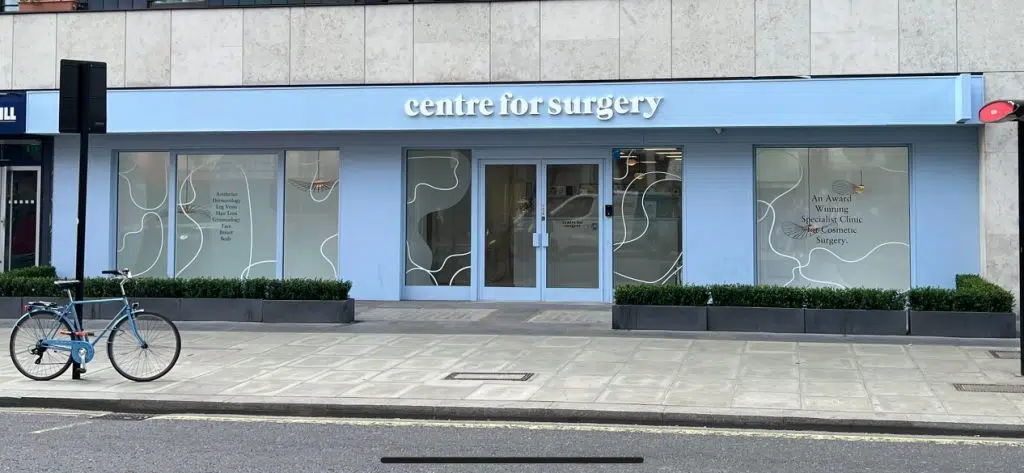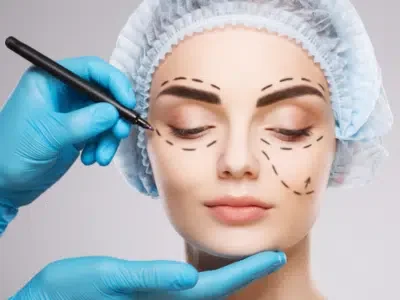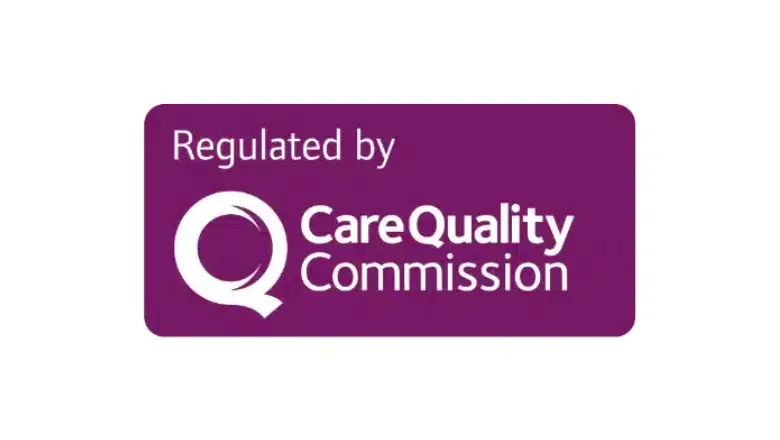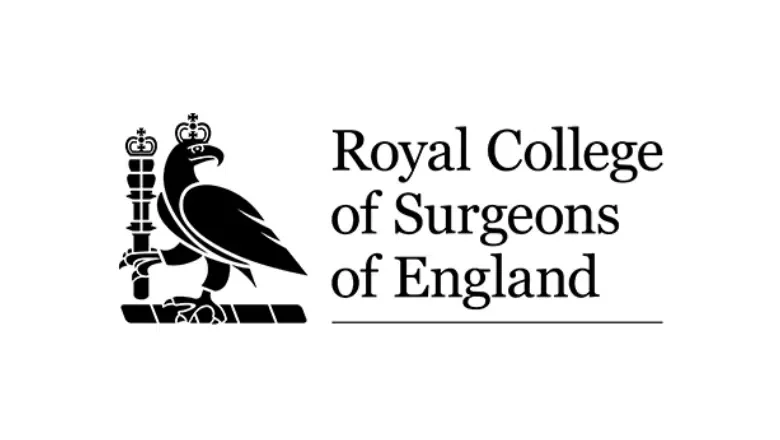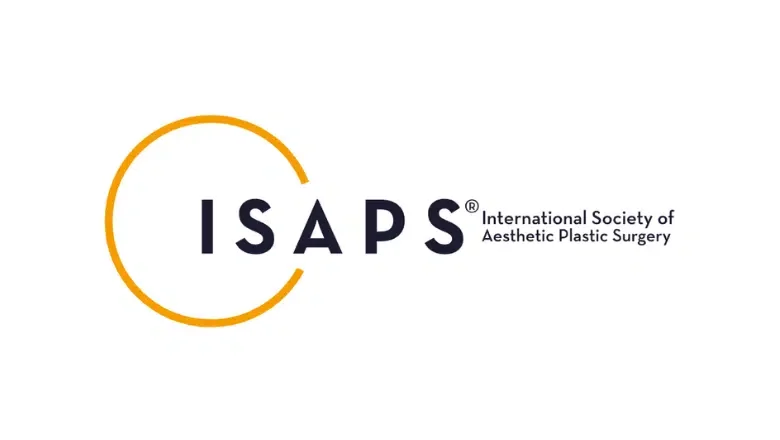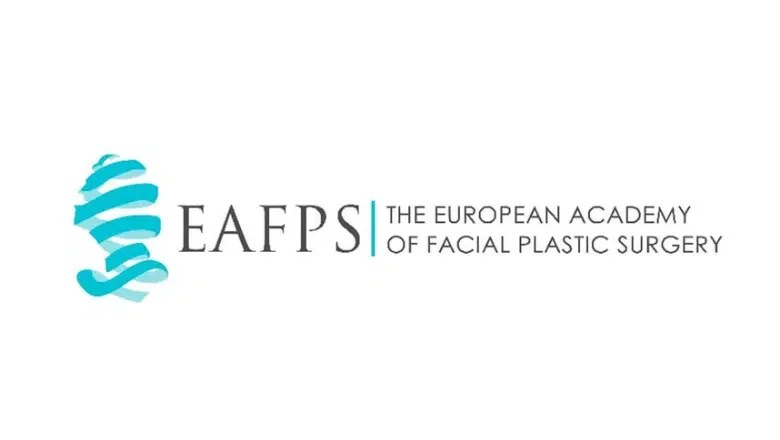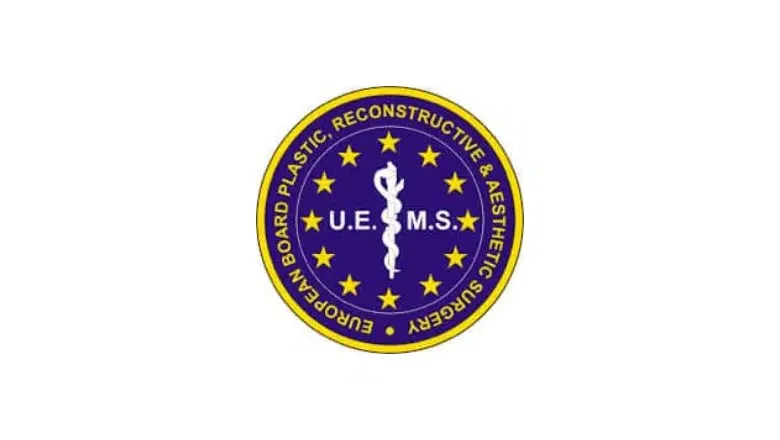Many people are understandably concerned about the length of the potential recovery after eyelid surgery, also known as blepharoplasty. Fortunately, an eyelid lift has a quick recovery, with most people being able to return to work within a few days. Here, we discuss how long it takes to recover from eyelid surgery and how to optimise blepharoplasty recovery to help you heal quicker. This will help you to achieve the best eyelid surgery results.
RELATED: Is eyelid surgery worth it?
Understanding Recovery After Eyelid Surgery
If you’ve just undergone eyelid surgery or are considering it, knowing what the recovery process entails is essential. Firstly, post-surgery, you’ll notice small surgical cuts on your eyelids. It’s crucial to treat these with care. The area around your eyes might feel tender, tight, and even sore.
Following the operation, you might observe a few changes with your eyes. They could become teary or dry, slightly sticky, or even a bit itchy. Your eyes might also seem more sensitive than usual. These symptoms are completely expected and are a typical part of the healing journey. Moreover, don’t be alarmed if your vision seems a bit unclear for a few days after the procedure. You might feel mild pain and unease, but don’t worry. Your surgeon will provide you with the necessary medications to alleviate any discomfort.
Maintaining cleanliness around your eyes is of utmost importance during this time. Under no circumstances should you rub your eyes. Always stick to the guidelines your surgeon gave on how to clean and care for your eyes properly.
Post-surgery, you’ll notice some swelling and discolouration around the eyes. This bruising is temporary and will last about a fortnight. As for the stitches on your eyelids, they’re designed to dissolve by themselves, typically within 3 to 5 days after the surgery.
In a matter of weeks, most of the bruising will have dissipated. Over the next three months, the overall look of your eyes will noticeably improve. Most individuals find that they’re ready to go back to their regular work routine about 10 to 14 days post-surgery. You might also be advised to use specific eye drops to keep your eyes moisturised.
RELATED: Eyelid Surgery FAQs – Q&A about Blepharoplasty
What factors can affect blepharoplasty recovery?
Blepharoplasty recovery is unique to each patient, although there are several common features that most patients will experience during their eyelid surgery recovery, as listed below:
- Your age
- Your general state of health
- The type of work you undertake – more physically demanding jobs may result in prolonged bruising and swelling.
- How closely do you follow your surgeon’s postoperative aftercare instructions?
- The type of eyelid surgery you are having – upper blepharoplasty and/or lower blepharoplasty
- If you have combined your eyelid surgery procedure with other procedures, such as a mini facelift
RELATED: Male Eyelid Surgery (Blepharoplasty For Men)
How to prepare for eyelid surgery
You should avoid any medicines containing aspirin for at least two weeks before surgery, as these medicines are associated with an increased risk of bleeding during and after the procedure. Smokers should avoid smoking at least four weeks before and after surgery. Smoking is associated with an increased risk of wound complications and can result in excessive scarring.
RELATED: What are the benefits of eyelid surgery?
Excessive sun exposure should be minimised for at least two weeks before surgery, and you should wear a minimum of SPF 30 sunscreen if outdoors. It would be best if you tried to collect your prescriptions for antibiotics and painkillers before the procedure. You will need to avoid food for at least six hours before the procedure, and clear liquids can be consumed up to two hours before surgery.
You will need to arrange for a responsible adult escort to collect you once the procedure is complete and look after you for at least 24 hours afterwards. Our clinic staff will not be allowed to discharge you without having a responsible adult with you. If you live far away from the clinic (at least 3 hours away), we recommend staying in a local hotel close to the clinic.
On the day of your eyelid surgery
Preoperative fasting guidelines should be adhered to, including six hours for food and two hours for clear liquids. You may be given oral premedications before the procedure, which can be taken with a small sip of water. You should wear loose-fitting, dark-coloured clothes that can be button-fastened. Avoid T-shirts and other clothing that have to be applied over the head. Do not bring any valuables to the clinic, and avoid wearing jewellery. Avoid applying make-up on the day of surgery and remove any nail polish or artificial nails. You should avoid wearing contact lenses and wear glasses instead. If dentures are worn, they should be kept in and make sure to inform your anaesthetist you have dentures. Don’t forget to bring a formal type of identification, as your nurses will use this to verify your identity during the admission process.
RELATED: What Does Eyelid Surgery Involve?
After Eyelid Surgery
It is normal to experience blurry vision once the blepharoplasty surgery has been completed. This is not a sign of complications during surgery. Blurred vision after eyelid surgery is nothing to be concerned about as your surgeon applies antibiotic ointment over the eyes to prevent the eye from becoming dry during surgery. The antibiotic ointment should be used up to 7 days after surgery and applied four times a day to the inner aspect of the eye and the incisions themselves.
Blepharoplasty recovery time
Blepharoplasty recovery can be divided into three components—initial bruising and swelling followed by healing and maturation of the eyelid surgery incisions. Bruising is the first symptom to disappear, taking approximately 3 to 4 weeks. Swelling can take longer to resolve and can last up to 6 weeks or longer in certain cases. Swelling takes time to settle down gradually. Most patients can return to work or go outside approximately five days after the procedure. If you feel comfortable appearing bruised in public, you may be able to go out sooner. Eyelid surgery involves making surgical incisions, and this will result in scars. Blepharoplasty scars can take 12 months or more to mature into a faint white line. Following your surgeon’s postoperative instructions for eyelid surgery recovery will give you the best possible chances of achieving virtually invisible scars after eyelid surgery.
RELATED: Lower Blepharoplasty Recovery Day by Day
Post-Blepharoplasty Recovery Guide
Understanding the progression of the healing process is crucial to ensure a smooth recovery after eyelid surgery. Here’s a breakdown of what you can anticipate:
First 24 Hours Post-Op:
- Once the effects of anaesthesia diminish, you can head home. Do arrange for someone to drive you since you might have bandages and gauze over your eyes.
- Dedicate the initial 24 hours to rest, ideally keeping your head elevated. The first few days often see the highest degree of swelling and a sensation of tightness around the eyelids.
- Administer prescribed eye drops and ointments diligently and adhere to your pain management regimen.
- Utilise a cold compress for swelling alleviation. Direct contact with ice on your eyelids is a no-no. Instead, wrap the ice in a cloth and apply in intervals without excessive use.
1-2 Weeks Post-Op:
- Expect the eye region to remain swollen, which typically eases after two weeks.
- The surgical incisions might exhibit a reddish-pink hue.
- A temporary numbness of the eyelids is normal.
- Given the heightened light sensitivity of your eyes, minimise screen exposure.
- Depending on individual responses, your eyes could either water excessively or feel excessively dry.
- Some might observe a ‘black-eye’ appearance owing to bruising. Refrain from consuming any medications that can thin your blood.
- For optimum recovery, adhere to a regime of head elevation during sleep, adequate hydration, ample rest, a nutritious diet, consistent medication, and diligent sun protection.
From the 2nd Week Onwards:
- After two weeks, many patients find themselves fit to resume work, having had a considerable period of recuperation.
- For the upcoming month, limit activities that strain the eyes, such as prolonged reading or excessive screen use.
- By the end of the second week, you can introduce mild activities into your routine like gentle walks or simple household chores. However, always consult your surgeon before resuming any strenuous activities.
- Your surgeon will typically green-light the application of light makeup after 3-4 weeks. It’s prudent to avoid using products like waterproof mascaras or chunky glitter eyeshadows during the initial recovery.
- Sunglasses are your allies! They shield your sensitive eyes from both sun rays and wind.
Remember, individual recovery timelines can vary. Always maintain open communication with your surgeon to ensure your recovery is on the right track.
Eyelid surgery recovery – aftercare instructions
Healing and recovery after blepharoplasty surgery are generally straightforward, provided you follow your surgeon’s instructions for eyelid surgery recovery. This will ensure you heal well with minimal risk of complications occurring. Failing to follow the instructions in full may increase the risk of developing post-operative wound complications after surgery, increasing the risk of excessive scarring.
Arrange for time off work
It is important to remember that blepharoplasty recovery time requires people to take time out to rest. We would recommend one week off work. If you have children, you may require additional help, especially with younger children, including dropping them off and picking them up from school. Arrange for someone at work to cover you in your absence. It is a good idea to shop for the right foods before surgery to avoid the need to leave home early after having surgery.
Follow your surgeon’s postoperative advice
Following your surgeon’s instructions is vital for a speedy recovery. We recommend using cold packs around the eyes, especially during the first 3 to 5 days. The eyelids can be gently cleansed using saline wipes. You should use the antibiotic ointment as directed by your surgeon and avoid rubbing your eyes, as this could irritate the incisions. To avoid corneal irritation, you should avoid wearing contact lenses for at least two weeks after surgery. It is a good idea to sleep propped up on a couple of pillows for the first few days after surgery to reduce eyelid swelling. You should avoid smoking for at least four weeks after surgery to minimise the risk of postoperative wound complications.
You must have any non-dissolvable stitches removed approximately 5 to 7 days after surgery. You should avoid using non-steroidal anti-inflammatory drugs such as ibuprofen, as these are associated with an increased risk of bleeding after surgery. Any health supplements that contain vitamin E or fish oil should also be avoided for similar reasons. Paracetamol can be taken if you experience mild discomfort. It would be best to familiarise yourself with the postoperative care instructions before surgery so there are no surprises during eyelid surgery recovery.
RELATED: How Long Does It Take for Stitches to Dissolve after Blepharoplasty?
Be aware of common side effects
Before considering having baggy eyelid surgery, you should have realistic expectations of what can be achieved after surgery. Having a good understanding of what recovery involves can help you remain motivated throughout the recovery period. Your eyes are likely to look puffy after surgery, and the incisions will be red and may be raised above the level of the surrounding skin. Many patients may describe having black eyes from the considerable bruising that may develop after surgery. These are expected side effects and will resolve within 2 to 3 weeks, after which you can see the initial results of eyelid surgery.
Stay relaxed
Maintaining a state of relaxation is crucial during the recovery process after a Blepharoplasty to avoid excessive eyestrain. You should refrain from visually intensive tasks such as watching TV or a computer screen after eyelid surgery. This will help to reduce the risk of developing dry eyes after blepharoplasty.
Avoid strenuous exercise
You should avoid any strenuous activities, including going to the gym, for at least four weeks after surgery. Excessive blood flow from exercise may increase swelling and lead to post-operative bleeding. You should also avoid lifting heavy items.
Get plenty of sleep
We would recommend getting plenty of sleep as this allows the body to heal itself. You may feel more tired after surgery during the first couple of weeks, listen to your body and rest sufficiently to give your mind and body time to relax and heal.
Ensure proper eye protection
It would be best to avoid excessive exposure outdoors during the first few days after surgery, including strong sunlight. When you do go outside, we would recommend wearing appropriate sunglasses, a wide-brimmed hat and sunscreen to protect the healing incisions.
How to prepare for Eyelid lift Surgery
Before having blepharoplasty surgery, you will need to have an in-person consultation with an experienced plastic surgeon to discuss the benefits and risks of the procedure and determine your suitability. Your surgeon will explain the preoperative and postoperative instructions you must follow to ensure you get the best possible results. It is sensible to collect your post-operative medications before the day of the procedure, including cold packs and sterile gauze. Most types of blepharoplasty surgery are amenable to a local anaesthetic, although your surgeon will recommend the most appropriate type once they have performed a physical examination.
What are the potential risks and complications of blepharoplasty surgery?
Potential risks of eyelid surgery include:
- Alteration in sensitivity around the eyelids
- Temporary blurred vision
- Excessive sensitivity to bright light
- Ectropion formation
- Dry eyes
- Problems in closing the eyes fully
- Permanent visual disturbance (rare)
RELATED: Risks of Blepharoplasty Surgery – Eyelid Surgery Risks
Recovery from Eyelid Surgery: Frequently Asked Questions
How much time is needed to recuperate from blepharoplasty?
Typically, most patients can resume work approximately two weeks following the procedure. Nevertheless, the overall healing and recovery process might extend over several months. Individual experiences and timelines may vary.
What are the best practices to ensure a speedy recovery post-blepharoplasty?
To expedite your recovery:
- Utilise cold compresses to alleviate the swelling.
- Adhere to the prescribed medication regimen.
- Administer eye drops as directed.
- Prioritise rest and relaxation.
- Embrace sun protection, including wearing sunglasses.
How long will my eyelids exhibit redness post-surgery?
Eyelid redness is standard post-blepharoplasty and generally fades within a fortnight.
Post-surgery, what changes can I anticipate?
Post-blepharoplasty, expect swelling, bruising, redness, and heightened light sensitivity.
Is side-sleeping permissible after the surgery?
No, sideward sleeping post-surgery is discouraged. Sleep supine with an elevated head for optimum recovery, facilitated by stacking pillows.
When can I commence hair washing post-surgery?
Generally, you can wash your hair a couple of days post-blepharoplasty, being cautious to prevent shampoo from entering your eyes.
How long will bruising persist post-blepharoplasty?
While most bruising subsides within two weeks, certain cases might see it linger for up to a month.
When can I reintroduce makeup post-surgery?
It’s prudent to abstain from makeup, especially eye makeup, for the initial two weeks. Always seek your surgeon’s clearance before reintroducing makeup.
Is watching television advisable post-surgery?
Limiting television and other screen-time post-surgery is recommended, especially in the initial recovery phase.
When are stitches typically removed post-blepharoplasty?
Most sutures are dissolvable and will disappear on their own in about 5-7 days post-procedure.
What should I apply on my post-operative scars?
Once your eyelids have thoroughly healed, consider applying a silicone-based scar cream specifically designed for post-surgical scar mitigation.
How can I address scars resulting from the eyelid surgery?
There exist multiple scar treatments; ensure you discuss the best options with your surgeon.
How should facial cleansing be approached post-surgery?
Post-surgery, the key is gentleness. When washing your face, avoid any rigorous rubbing around the eyes and ensure a gentle touch until complete healing is achieved.
Eyelid surgery at Centre for Surgery
If you have been thinking about having an eyelid lift, the first step is to schedule an in-person consultation with a specialist plastic surgeon at our state-of-the-art Baker Street clinic in London. You may have been thinking about having eyelid surgery for a long time. This is why we have focused on making the patient journey as smooth and comfortable as possible. Our friendly and knowledgeable patient coordinators are available as your point of contact to ensure you are comfortable with your decision to have blepharoplasty surgery in London. Your surgeon will determine your suitability at the consultation and recommend the most appropriate type of eyelid surgery based on a detailed clinical assessment. Every patient has unique eyelid anatomy surgery, which is always customised to the needs and desires of the individual patient. A full range of treatment options, including non-invasive treatments, will be discussed alongside consideration of both upper and lower eyelid surgery to ensure you achieve the best results with minimal downtime.
At the consultation, your surgeon will:
- Discuss the blepharoplasty procedure and what it involves
- Explain the potential risks and complications associated with eyelid surgery
- Describe the different steps of blepharoplasty surgery
- Give you an idea of what to expect before, during and after surgery
- Your patient coordinator will review you after the consultation to give you a detailed quotation and answer any questions or concerns you may have
Surgeons are committed to keeping up-to-date with the latest advances in eyelid surgery and have years of experience performing all types of cosmetic eyelid surgery, including upper and lower blepharoplasty. Our practice philosophy is to achieve natural-looking results to help you boost your self-confidence. Our cosmetic surgery clinic in London is one of the UK’s most respected centres for blepharoplasty surgery.
Achieving natural-looking and beautiful results requires detailed knowledge and understanding of the intricate anatomy of the eyelids and customising surgical techniques for optimal outcomes. Our surgeons attend national and international conferences to learn from the world’s most respected specialists in eyelid surgery. This benefits all our patients from gold-standard medical care at our central London clinic. Our surgeons and patient coordinators are dedicated to providing the highest standards of service before, during and after your procedure in a caring and personal environment.

